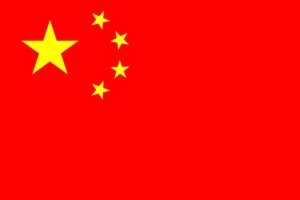China, is no stranger to controversies especially when it comes to stressing its new found status as a regional superpower. Its recent decision on November 23rd to declare a unilateral Air Defence Identification Zone (ADIZ) over the Japanese administered Senkaku (Diaoyu in China) islands, is another step in the same direction.
The declaration of the zone has several implications for China and the region at large. Primarily, this can be taken as the first real show of Chinese hegemony in the region. In some regards, China today represents a young teenager who has just started earning lots of money and has freedom to take his own decisions. In this spirit, he throws around his money to those whom he consider as weak to challenge him (and buy friends) and confronts those it considers as a threat. In the coming decade, we are bound to see many more such displays of strengths from the Chinese.
Secondly, it marks the shift of power in Asia from Japan to China. China was the reigning regional power till the 1850s while Japan started gaining in strength from 1920s and 30s onwards. The atrocities committed by the Japanese forces in China in the Second World War still looms large over any friendly dialogue between the two nations. The fresh calls to set up a hotline between Beijing and Tokyo are likely to go unheeded in China. Setting up such a line will imply that Beijing recognises Tokyo as its equivalent in the region, a scenario that China will not want.
Thirdly, why should China suddenly be so eager to stake claim over a group of uninhabited islands, which has long been administered by the Japanese? The real answer to this lies in the energy game- South China Sea is believed to have huge oil reserves, and naturally it draws the attention of energy hungry China. Political control over the Senkaku islands will strengthen its claims of sovereignty over the entire South China Sea. China has previously raised objections to Indian oil companies’ explorations in the region in cooperation with the Vietnamese government, citing the same reason.
The one thing that China has apparently perfected is the timing of such events. The setting up of the zone comes along with other major events in region: the withdrawal of American forces from Afghanistan, the launch of Chinese lunar mission and Vice-President Joe Biden’s planned visit to China.
The first event signifies the lesser American presence in the Asian geopolitical space- a vacuum that both China and India would be looking to fill in Afghanistan. China firmly wants America to recognise it as the Asian superpower without whose cooperation it cannot be expected to negotiate a deal in the region. While the launch of a lunar mission might look unrelated to the chain of events, it actually isn’t so. The launch comes close to the launch of India’s Mars mission and Chinese attempt to soft land on the moon’s surface with Chang’e-3 lunar probe will be the first by any country (if successful) since 1976. In fact, the Chinese lunar plan envisages setting up a permanent base on the lunar surface in the next two decades, which even US has not envisioned in its space strategy so far. A testimony to increasing Chinese superiority over its American counterparts.
As a political analyst, one cannot help but admire the effectiveness with which the Chinese set the tone before a significant political meeting. The recent chain of events is directed towards Japan as much as it is directed towards the US Vice-President’s visit. China remains one of the primary holders of US external debt which gives it enough cushion to flex its muscles before any important diplomatic dialogue.
How did the US react? The US responded by sending in B-52 Bombers over the zone, followed by South Korean and Japanese aircrafts. However, eventually the US asked its commercial airlines to comply with Chinese authorities while flying over the area – a de-facto recognition to the air defence zone. Was the US not back-stabbing long standing allies like Japan and South Korea by this decision?
The reality though is slightly more complicated. The US- China relation has reached a stage where both these superpowers need each other. President Obama wants a G2 in future comprising China and USA. China needs American market to grow in present times; America foresees China as the future market of its Shale oil exports. Another major point to note is that China has remarkably increased its geopolitical presence in the last decade. The recent US-Iranian deal could not have been possible without the Chinese playing a key role. US hopes China to play a similar role in controlling North Korea which quite clearly stated its nuclear ambitions. Besides this, the China-Pakistan angle can also not be ignored for safeguarding US interests in the region. In short, the US can today compromise the interests of its allies if the need so arises.
The entire chain of events however raises another major question- who actually is the super power of the 21st century? Perhaps it is best for the reader to decide.

































